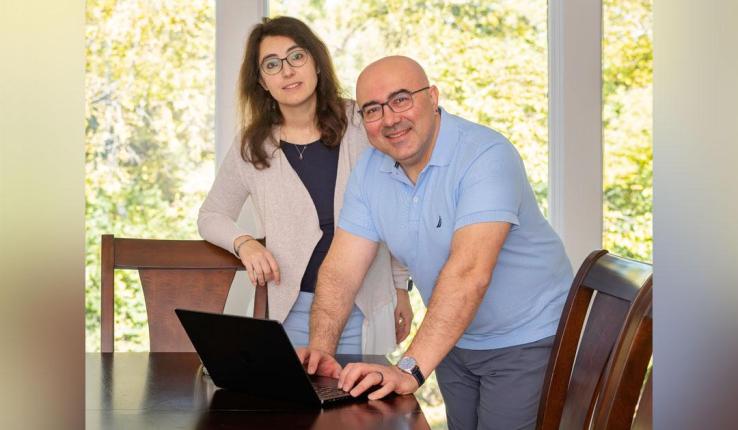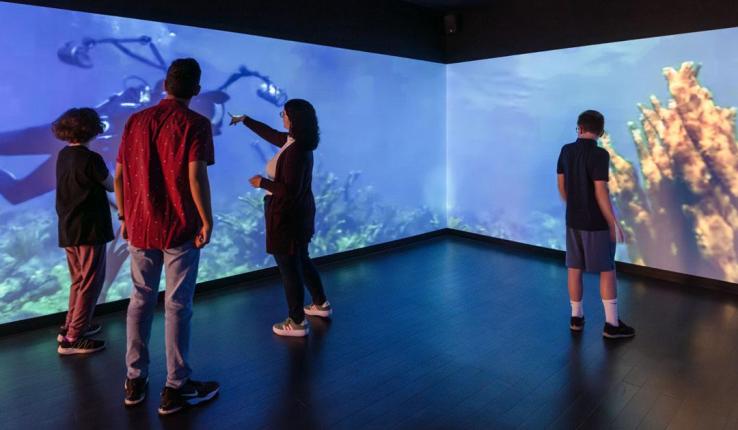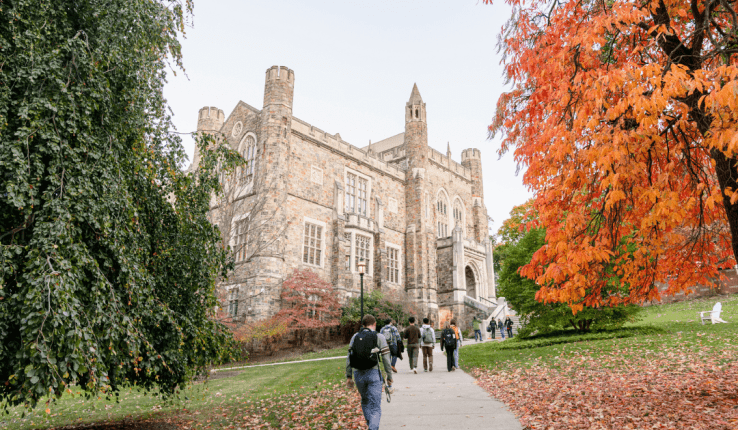Lehigh Pioneering Student-Centered, 'Use-Inspired' Approach to Graduate Education

With recent NSF support, Lehigh science, engineering and education faculty will develop a new approach to graduate education centered around a stronger collaboration between academia and industry than the traditional method. (Image credit: iStock/Thea Design)
According to Himanshu Jain, professor of materials science and engineering, the United States’ approach to graduate education has not changed much since the period after World War II.
Given the rapid pace of technological change and the growing need for a technologically skilled workforce, Jain believes that now is the time to innovate. The student-centered, “use-inspired” approach he envisions is not meant to replace conventional methods, but to provide an option for those students who are interested in “seeing the impact of their work.”
Jain, who is also T.L. Diamond Distinguished Chair in Engineering and Applied Science and director of the Institute for Functional Materials and Devices at Lehigh, describes the conventional model of graduate education—pursuing answers primarily to satisfy the intellectual curiosities of a faculty member alone—as “not the best option for everyone.”
“An education more closely aligned with solving real-world, industry problems should be available as an option,” says Jain.
That is why he is partnering with fellow science and engineering faculty at Lehigh, as well as faculty from Lehigh’s College of Education and a colleague at Corning Incorporated, to pioneer an approach to graduate education that is centered around a stronger collaboration between academia and industry than the conventional method.
The project recently received support from the National Science Foundation (NSF) through its highly competitive Innovations in Graduate Education program.
The team plans to test a graduate training model that represents a student-centered, holistic approach that provides students with long-term, hands-on industry experience besides the rigor of conventional doctoral program. It is led by principal investigator Jain, and includes co-principal investigators Anand Jagota, professor and founding chair of Lehigh’s Department of Bioengineering; Volkmar Dierolf, Distinguished Professor and chair of Lehigh’s Department of Physics; H. Lynn Columba, associate professor of instructional technology and teacher education at Lehigh; and Daniel Vaughn, Manager of External Technology Collaborations at Corning Incorporated.
A key feature of their approach is early and sustained industry engagement, with industry partners involved in the identification of the research question that forms the basis for the student's thesis, mentoring, the delivery of professional development modules, and supervision of students during a company residency—similar to medical school training.
“We live in a global and diverse world that increasingly depends on mathematical and scientific knowledge,” says co-PI Columba, a faculty member in Lehigh’s College of Education. “The Innovations in Graduate Education award will help Lehigh train STEM professionals capable of carrying out use-inspired research as identified with partner companies in an industrial setting. The resulting educational model will serve to create a well-rounded, technology-aligned workforce, providing a competitive edge to the country’s well-established industrial sector.”
“We hope this approach will train graduate students to more effectively engage in use-inspired research and prepare them with the skills and knowledge necessary to thrive in an industrial setting,” says Jain.
The first year will focus on planning, says Jain, who expects the first cohort of students to begin as early as fall 2019. The group plans to compare outcomes of this cohort with a reference group, a group of students taking a more traditional route.
“The goal is to achieve better student outcomes in terms of preparing graduate students for non-academic positions, in fact also help them become better prepared faculty members if they choose to go into academia,” says Jain.
To determine whether doctoral training at Lehigh had adequately prepared industry-bound students for non-academic positions, the team contacted 85 doctorates who graduated from 1991 to the present. The former students’ feedback revealed potential areas to where preparedness of industry-bound researchers could be improved. The survey participants cited communication skills, intellectual property implications, and team- and/or project-management as high-priority skills needed to achieve success in their industry roles, but they were not taught during their years as graduate student.
“Companies and universities have distinct roles,” says Alan Snyder, Vice President and Associate Provost for Research and Graduate Studies. “Companies strive to produce products and services that address their customers' needs. University research, by taking on deep, difficult, long-term questions, produces knowledge and understanding that enable future progress. Our goal here is to bring these endeavors close together in a way that respects our separate roles and enriches our students' experiences.”
Among the first activities of the group will be to convene a conference that includes experts from France, Germany and the UK—countries that have had similar successful programs—in order to learn from them, along with experts in the U.S. who have been studying industry-academia relations.
“Every society needs its free thinkers,” says Jain. “But no society can afford to have everyone take that route. I believe this ‘use-inspired’ approach should be available as an option.”
He adds: “We hope to demonstrate its viability at Lehigh and for this method to eventually be adopted at institutions across the U.S., ushering in a system-wide change.”
Posted on:




